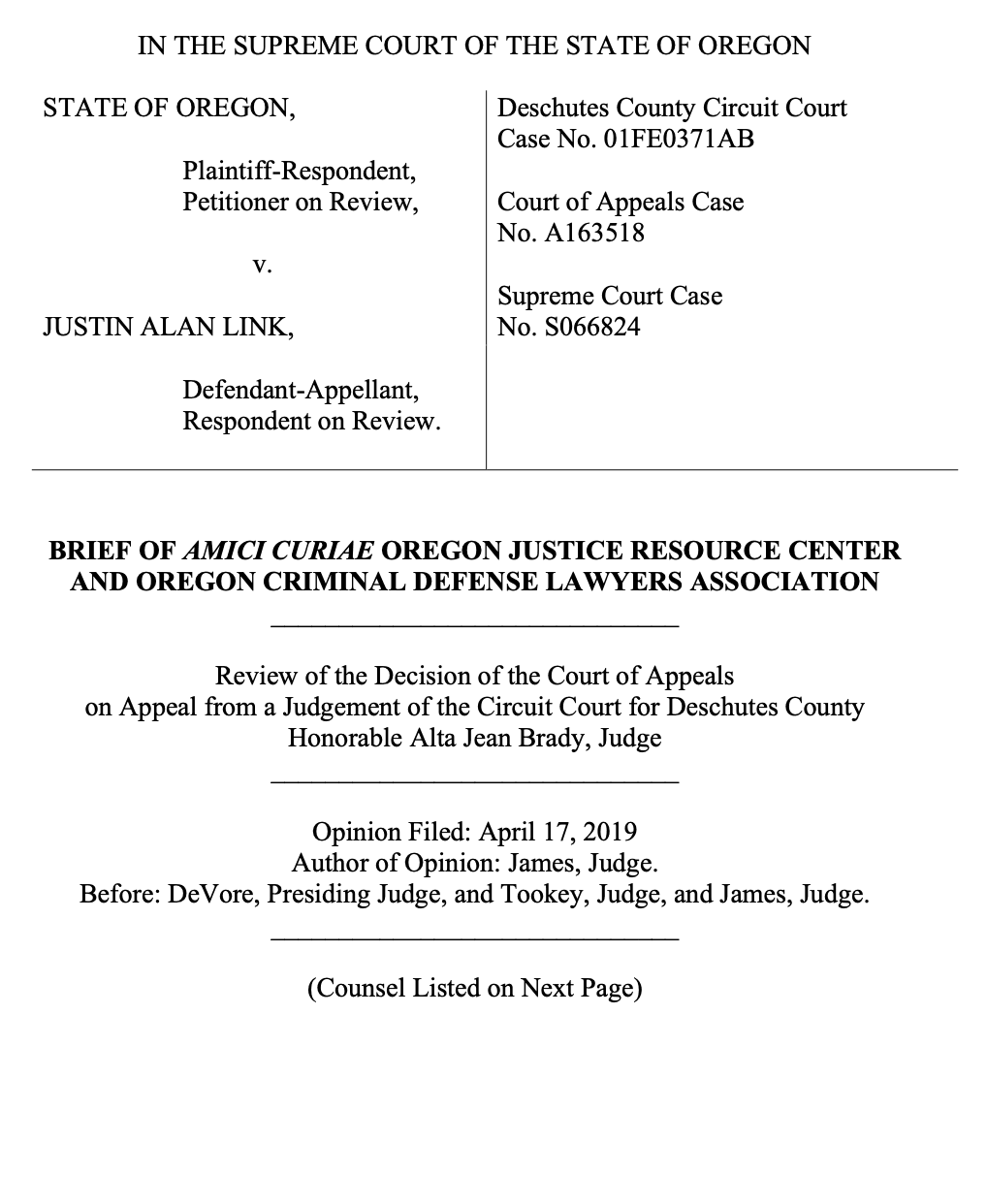
Summary of Argument
The United States Supreme Court has long recognized that juveniles are cognitively and developmentally different than adults, acknowledging developments in psychology and brain science. Scientific research on brain development and psychosocial maturity shows that juveniles are less developed than adults. In fact, human brain development is a protracted series of processes that extends until near the age of 25. Most important to juvenile criminal sentencing, the prefrontal cortex remains underdeveloped through adolescence. And the prefrontal cortex controls the executive brain functions of decision making, impulse control, and emotional regulation. Those lacking functions cause adolescents to lack the capacity to envision long-term consequences and to resist peer pressure.
Because of adolescents’ brain development, juvenile lifetime imprisonment sentences, including those that allow eligibility for parole after 30 years, fail to serve the purposes of punishment. Specifically, such sentences do not further the causes of defendant rehabilitation or public protection. Long-term imprisonment of juveniles works against rehabilitation, because prisons are inherently stressful environments that can negatively alter neural systems, especially those of developing brains. Furthermore, it is well documented that juveniles “age out of crime,” likely meaning their risk-taking behavior ceases when their brains are fully developed. Therefore, a juvenile’s prison sentence will also cease to serve the purpose of public protection when the juvenile matures into adulthood.
In light of the science of juvenile brain development, this court should hold that juvenile lifetime imprisonment sentences, including those with the possibility of parole after 30 years of imprisonment, are unconstitutional under Article I, section 16, of the Oregon Constitution and under the Eighth Amendment to the United States Constitution.